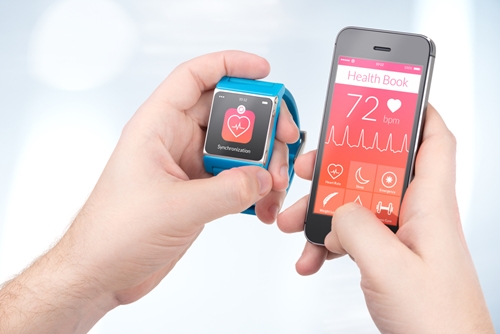Could clinical trials of health apps result in more users?
In a society fueled by instant gratification, there is a mobile app for nearly everything imaginable. From apps that can operate the lights and temperature in your home to ones that manage your billing and finances, there isn't much that they can't do. The use and popularity of these technological conveniences has soared in recent years in the majority of areas except one – health care.
A national survey of U.S. mobile phone users found that a significant percent of the population does not use health apps on their devices, according to Health Data Management. Carried out by the Verizon Foundation, the survey found that of more than 1,600 users, only slightly more than half reported that they had downloaded a health app. And of those 50 percent, half indicated that they no longer used the app. The biggest reason for ceasing use of an app was due to the burden of entering data. Many found this to be extremely time consuming and also worried about the safety of the information they were required to enter. Cost and loss of interest were two other factors contributing to users' decisions to no longer use the mobile health apps.
Changing the status-quo
During a time when the health care industry is aiming to bridge the existing gap in patient engagement, many doctors are turning toward health information technology. In addition to expanding the reach of patient portals and utilizing secure direct messaging, doctors should be pushing the use of mobile and wearable health technology, according to EHR Intelligence.com. Discussions and interviews with experts, doctors and health care professionals have indicated that advanced technology is the best way to engage patients in care outside of the hospital or doctor's office. So how can doctors help increase the use of mobile apps among patients?
One suggestion, given by Marcia Cheadle, RN, in an August webcast with EHRIntelligence.com, is that doctors and providers should take the time to show patients how to use mobile health apps. Explaining why the technology is important, what it can do for them and how it can help them take control of their own health will make patients more likely to use these health apps. When a patient gains an understanding of the app and how it can be used to send important information to his doctor, he will be much more willing to take on that burden of data entry.
Clinical trials for health apps
Assistant professor Paul Krebbs of the Department of Population Health at New York University School of Medicine believes that clinical trials would have a profound effect on the use of mobile health apps, reported Health Data Management. According to Krebbs, the effectiveness of these apps cannot be guaranteed without proper testing.
"It's kind of a crapshoot for most users. They're not sure that the apps will be helpful, so they won't pay anything for it," said Krebs "The problem is a lack of hard, clinical evidence of health outcomes. There's one diabetes app for which there was evidence found for it, but that's one out of 40,000 available in the Apple iTunes store—certainly not the ones that are most popular and used by millions of people."
According to Krebs, testing health apps in clinical trials would lead to increased use among patients and physicians alike. If someone could open an app and be positive of the way it would impact his health and benefit his lifestyle, he would have a greater inclination to use it – and perhaps even spend money on it.



